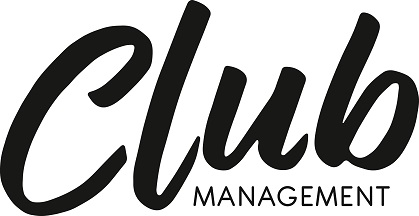ACT gaming minister Shane Rattenbury has reinforced that putting loss limits in place is the “most important” policy measure to gaming harm minimisation.
“We need to put limits in place so that people can’t lose their family savings and all the other associated harms that go with excessive use of poker machines, given by their nature they are designed to get people to play them more and more,” he told the Standing Committee on Justice and Community during a hearing into cashless gaming in the ACT.
He noted that based on research conducted by the Australian National University that if the ACT wants to provide “good standard gambling minimisation, loss limits is the better way to go”.
It comes as the ACT government announced that it is market testing whether a central monitoring system (CMS) could help reduce gambling harm, as the technology could be used to allow the consistent rollout of harm reduction initiatives, such as bet limits or loss limits.
“The best way to provide gambling harm minimisation is to implement loss limits and to do that on a universal bases, you need trunk infrastructure, you need to be able to connect the machines together,” Rattenbury said.
“If we leave it to the individual venues, you’ll get venue hopping – and this is the experience they find in Victoria.”
The clubs sector, however, opposes the idea of a CMS.
“The industry opposes the introduction of a central monitoring system being introduced for a variety of reasons,” Clubs ACT chief executive craig Shannon told Club Management.
“Given the small market we have, an estimated $70 million spend for a new CMS is an outrageously high figure for nominal benefit to the community or the industry. The implementation costs and the ongoing per month per machine cost will most likely see the closure of a number of smaller clubs who could not carry the cost impact.
“There are also significant privacy issues associated with the proposed CMS model which have not been contemplated by the Minister in his statements.”
The high cost of a new CMS was a similar concern that Marisa Paterson, deputy chair of the Standing Committee on Justice and Community and former director of the Australian National University’s Centre for Gambling Research, raised during the inquiry. She labelled Rattenbury’s policy a “dud”.
“Minister, can I put to you that we have a dud policy … [and] requires a $70 million, approximately, central monitoring system that in itself is an administrative tool, and we no idea as a jurisdiction where we’re going in terms of what our harm minimisation policies may be, what works, what doesn’t,” she said.
Shannon believes introducing cashless gaming – something that is currently being trialled in NSW – would be a more effective solution.
“We believe that a consideration of the options for cashless gaming provides a lower cost and more effective model than a CMS to achieve harm minimisation outcomes in the ACT,” he said.
“It concerns us that the minister is claiming the CMS will be a tool to achieve harm minimisation outcomes when that is not its purposes in any other jurisdiction.”
The minister, on the other hand, argued that patrons would be worse off with cashless gaming,
“Principally, because cashless payments are relatively frictionless … there’s certainly considerable concern that cashless gaming without harm minimisation measures attached to it will make gaming harm worse,” he said.
In a further push to ensure it meets its target to reduce the number of poker machines in the territory, Shattenbury introduced a bill last week that would force clubs to surrender their gaming machines if the government cannot reduce number of pokies to 3,500 by 1 July 2025.
The Gaming Machine (Compulsory Surrender) Amendment Bill 2024 is an extension of the Gaming Machine Authorisation Surrender Incentive Scheme, where the ACT government pays clubs a $15,000 incentive for every poker machine that is surrendered, or $20,000 per machine until a venue becomes pokies-free.
“While we welcome the announcement, it is just an extension of the existing scheme,” Shannon said.
“We also do have an objection to any suggestion of compulsory acquisition, and hope the target is met through voluntary surrender.”
Shannon understands the ACT government is approximately 270 licenses short of its 3,500 target.
“Unfortunately, the payments offered do not represent the true value of those licenses, in our opinion, and are not necessarily an attractive proposition for many clubs,” he said.
He said the sector will consider its options closer to the date if the ACT government cannot meet its target.
“Our response will be determined by the number of licenses required to be surrendered to reach the target,” Shannon said.

